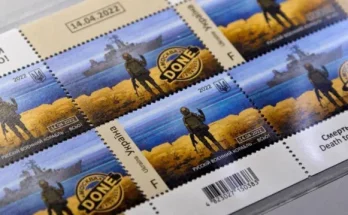Florida Judge Aileen Cannon has delayed trial for Ryan Routh, the man suspected of attempting to assassinate President-elect Donald Trump, from February to September of 2025.
In an order issued on Dec. 23, Cannon cited “substantial discovery” or the amount of evidence to review before trial.
Her order sets up a series of pre-trial deadlines, leading to a two-week trial period beginning on Sept. 8.
Routh’s attorneys had requested extending the trial date until at least December 2025, which Cannon said was “excessive.”
“Although discovery is substantial due largely to the high number of electronic devices seized in this case [many from Defendant himself], the schedule afforded below more than accounts for review of such devices and of discovery in general,” Cannon said.
Her order noted that the Department of Justice (DOJ) filed a discovery response on Dec. 20, “transmitting what appears to be all of the outstanding discovery … including body-worn camera footage, recent interviews, and additional jail communications.”
The U.S. Attorney for the Southern District of Florida argued that was excessive and noted that many of the devices subject to discovery were Routh’s own.
Of the 18 cellphones the defense highlighted in their motion to delay, 17 belonged to the defendant, U.S. Attorney John Shipley said in a filing to the court on Dec. 10.
“And while defense counsel may not be personally familiar with these devices, the lion’s share of their contents likely has little relevance to any serious defense,” he said.
During the Dec. 11 status conference, defense attorney Kristy Militello said Routh may have forgotten some of the contents, which could also include information the defense attorneys were unaware of.
Shipley’s filing also cited the Crime Victims’ Rights Act, which provides victims a right to proceedings free from unreasonable delay.
In her order, Cannon disagreed that the delay would be unreasonable under that law.
She also said that “the interests of justice served by this continuance outweigh the best interest of the public and defendant in a speedy trial.”
On Dec. 11, Militello said it could take months to interview experts to evaluate Routh’s mental health. Cannon seemed skeptical and concerned that the court needed a more concrete or specific timeline for getting expert input.
The defense also said it sought access to Routh’s childhood school records in an apparent attempt to capture his mental health history.
Shipley criticized the idea that the defense would need to go through decades-old school records.
“Insanity is at the moment of the crime,” Shipley said, saying Routh was able to distinguish between right and wrong at the time of the criminal offense.
Before the September trial date, the parties have three pre-trial conferences scheduled for March 3, Aug. 8, and Sept. 2. Cannon also reserved May 14–May 15 for hearings on any unresolved pre-trial motions.
Cannon has overseen two cases involving Trump, including his classified documents case, which she dismissed in July over the legality of special counsel Jack Smith’s appointment.
In October, she denied Routh’s motion for her recusal.
“I have never spoken to or met former President Trump except in connection with his required presence at an official judicial proceeding, through counsel,” she stated in her decision.
Routh is currently being detained at a federal prison in Miami, Florida. The defense had raised concerns about the logistics of meeting with him, and Cannon’s order stated that: “Defendant is by no means impeded from consulting with counsel during his pretrial detention.”
“Nor is there any basis to believe that Defendant is hampered in his ability to review non-prohibited discovery materials while in custody.”
During the Dec. 11 hearing, the prosecution expressed concern about Routh potentially tainting the jury pool with public statements defending himself.
In both Shipley’s file and at the hearing, the prosecution referenced a recorded phone call Routh made from jail.
“In a recorded Oct. 15, 2024, call from FDC-Miami, for example, Routh told a family member that he seeks publicity to aid his case at trial and to put out the word to jurors that he is, in his view, an honorable person,” Shipley’s filing read.
Cannon set June 13 as the due date for a joint report on jury selection procedures and proposals.




